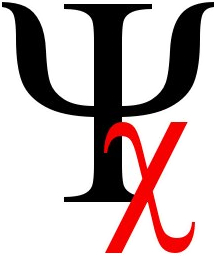Epistulae ad Percontatores
A Letter from Editor Curmudgeon
H.D. Onesimus
Our faithful readers know that Speculative Grammarian exists primarily to satisfy their quest for knowledge. In that spirit, some of the more avid questers send specific queries, asking if we might be able to elucidate this, that, or the other topic of particular interest. As often as possible, we oblige these sundry requests via commissioned articles. Sometimes, though, we feel that it’s time to just clear out the mailbox and answer, via editorial, some of the most philosophical of these questions.
One question we often receive is usually framed more or less in the form: “what is the single-most common question that SpecGram receives from its readers?” The answer to this question may surprise you! The single-most commonly-submitted question is this very question itself. We like to think that it thus achieves a sort of self-referential, self-actuating interrogation, and thereby attains to a state of Language which most mere human languages never even approach. Many water cooler discussions have centered around this issue, with extremely satisfying results.
 7th BAAL Learning and Teaching SIG conference, 2011, “Theorising practice and
practising theory: developing local pedagogies in language teaching”.
7th BAAL Learning and Teaching SIG conference, 2011, “Theorising practice and
practising theory: developing local pedagogies in language teaching”.
Chiasmus of the Month
March 2012
|
|
|
|
|
Having dispensed with that, let us continue in the present vein and tell you that the second-most common question that pops out of the mail slot is “How many satirical dialects do you speak?” For the linguists among our readers, this is a distressingly familiar theme. However, in our case the answer is a real and satisfying one, without need for embarrassing explanations.
We at SpecGram are specialists in human-linguist relations, and are fluent in over six million forms of satirical communication. Thus, we feel qualified to answer, without hint of either pride or modesty, “nearly all of them.” If it’s satirical, we understand it, and our Corporate Mission Statement® promises that we’ll help you understand it too (if you are either human or a linguist).
Third-most common among our enquiries is the question we would have expected to be first, namely: “what is linguistic satire?” This is the real nature of our business, the core of our expertise, and the key to our success. Naturally it should be what you want to know from us. It amounts to this: “How do we do it? How can we be so consistently funny?”
Forget it. The keys to arcane knowledge are locked away in our vault, and nobody will knock down that door. We’ve invested decades of time and manpower in maintaining utmost secrecy on this topic. In spite of our lamentably high staff turnover, our code of silence has never been breached—if it had been, Linguistic Discovery would be doing a much better job—and we are going to keep it that way.
So keep on asking your questions, and we will keep on answering them, with the high-quality satire that’s been our hallmark since before the Horde galloped across Asia. But don’t bother asking how we do it. That’s a secret that will never be revealed.
A Poem Puzzle Solution
To uncover the hidden meaning in last months’s Poem Puzzle, first convert the text to Pinyin:
cúnnìngkĕn,ārúdemànrùnníngāgāng,
dătingsùé: pŭrèwŏmàn
shècănsūrĕdàncènùdé: ārùsè,ālùrĕ
gŭnmenwàitíng,hātĭng,wăntíngáchăngè,
tākĕācháncè,sāyīng
‘dìé,kĕn’
hémădeālóngfācè: ‘yŏudàrĕ…’
bāng!
pàle,pántíng, hērán
băngbàng!
‘yòucāndìéhērĕ, kĕn, hāhā!’
Ignoring diacritics and adding a few spaces here and there, the story becomes clear:
Cunning Ken, a rude man running a gang,
Dating Sue: pure woman
She can sure dance nude: a ruse, a lure
Gunmen waiting, hating, wanting a change,
Take a chance, saying
‘Die, Ken’
He made a long face: ‘you dare...’
Bang!
Pale, panting, he ran
Bang, bang!
‘You can die here, Ken, ha ha!’

